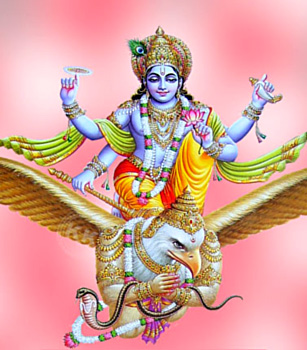 The concept of Praysachitta can be traced back to the Vedas. Though in the Indian Puranas it is held that mere remembrance of Lord Narayana is capable of removing all sins yet Prayaschitta in Narada Purana enumerates five despicable crimes and how one can compensate for it. The word Prayaschitta is obtained from `Praya` meaning `tapas` and `Chitta` meaning `resolve` The Prayaschitta is so called because of the firm belief that it will be a means of the sin removal. Sage Narada, in Narada Purana, states that murderer of a Brahmin, a drug intoxicant, gold thief, violator of teacher`s bed and one who links with the above mentioned evil acts.
The concept of Praysachitta can be traced back to the Vedas. Though in the Indian Puranas it is held that mere remembrance of Lord Narayana is capable of removing all sins yet Prayaschitta in Narada Purana enumerates five despicable crimes and how one can compensate for it. The word Prayaschitta is obtained from `Praya` meaning `tapas` and `Chitta` meaning `resolve` The Prayaschitta is so called because of the firm belief that it will be a means of the sin removal. Sage Narada, in Narada Purana, states that murderer of a Brahmin, a drug intoxicant, gold thief, violator of teacher`s bed and one who links with the above mentioned evil acts.
The five sinners counted as the equals of a murderer of a Brahmana are: panktibhedi (one who defiles a society of persons), vrathapaki (one who cooks for one`s own use), Nityam Brahmanadusaka (one who kills Brahmanas usually), adesi (one who does acts forbidden by the king) and Vedavikreta (a seller of the Vedas). Again, an obstructer of a Brahmana on his way to bathe or worship, a liar, one who is unrighteous, one who hurts others or speaks ill of others, etc also are considered as Brahmaha.
One, who kills unknowingly a Brahmana as expiation, should wander in the jungle for twelve years wearing bark as a garment and with a human skull. While doing this he should bathe, worship Lord Vishnu and take food once a day only. A gift of ten thousand given to a virtuous Brahmana is also considered to expiate the sins of murdering of Brahman. In order to redress the sin of liquor drinking one has to drink boiling milk, ghee or cow`s urine.
Sins like theft of fruits, musk, jewels, metals like zinc, iron, honey, sandal wood are also equal to stealing of gold also. For pilfering gold belonging to a Brahmana the offender has to undertake Brahmahatya Vrata for twelve years. By stealing the same thing belonging to his teachers, sacrificers, after coating his body with ghee he should burn himself in fire.
A person consigning intercourse with one`s own mother, step-mother or teacher`s wife mistakenly can compensate the sin by killing himself. Accidental contact with four of the above types of offenders requires the performance of Kayakrachra vrata.
Punishments are also mentioned for killing frog, crow, mouse, cat, dog, cow and some other animals. Donation is also prescribed as Prayaschitta. Reparation also differs according to Varna also. If a Brahmana kills a sacrificer, Kshatriya, he should endure Brahmahatya vrata, agnipravesha or throwing oneself into the air and ending life. If the slayer is a Kshatriya or a Vaishya, the same expiations recommended above should be performed twice and three times respectively. If the killer is a Shudra he is put to death and punished by the king. This shows that the punishments for misdeeds depended upon the Varna.
These sins can be removed by the expiations said to be prescribed by the prophets, there are some sins which are called complete sins leading the sinner to hells as no penance has been recommended. An offense which has no remedy include lack of sympathy to Brahman, betraying the trusted, ingratitude, contact with a Shudra woman, living on Shudra`s food, offending Vedas and noble stories, and entering a Buddhist temple .



















